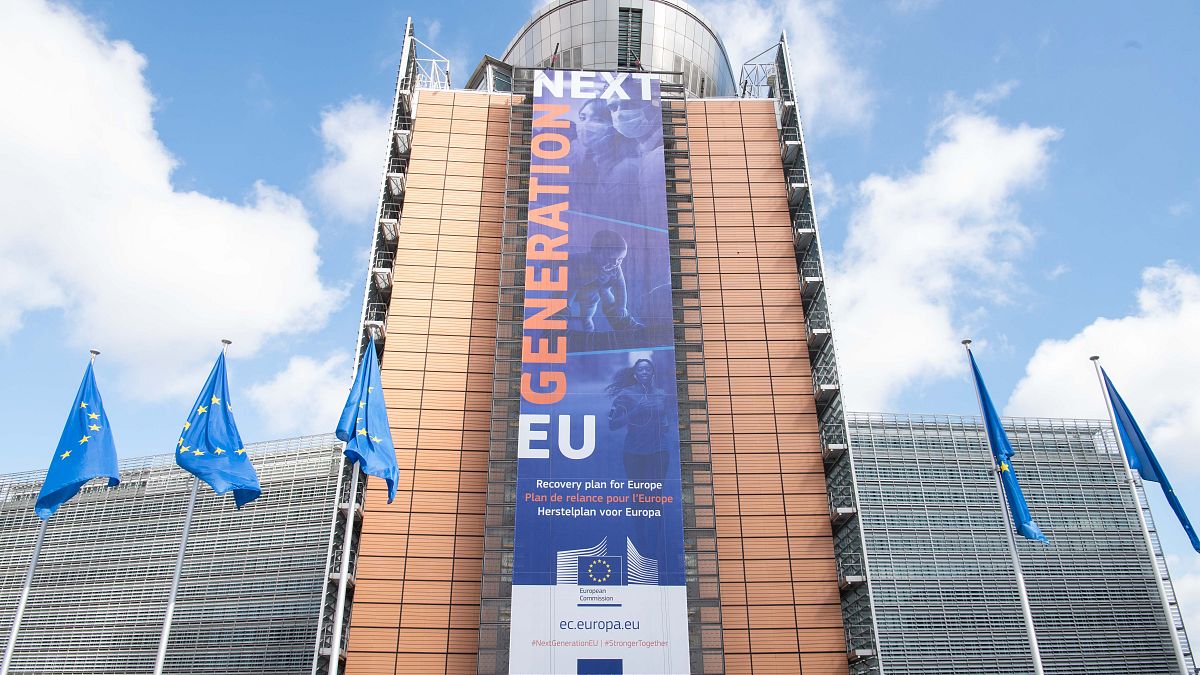World
What future awaits Russia’s Wagner army and its notorious boss?

Kyiv, Ukraine – Back in 2013, the year after Vladimir Putin’s return to presidency and the year before Moscow annexed Crimea, Aleksandra Garmazhapova got an undercover job.
The investigative reporter briefly worked as an “online operator” typing up hundreds of pro-Kremlin comments from a snow-white office outside St Petersburg, Russia’s second-largest city and Putin’s hometown.
The office reportedly hosted a “troll farm” that belonged to Yevgeny Prigozhin, known at the time as “Putin’s chef” for his catering services to the Kremlin.
Garmazhapova’s story was a major scoop that put the now infamous “troll farms” on the map and eventually got their owner blacklisted by Washington for meddling in the US presidential election in 2016.
She is confident that after Wagner’s march on Moscow, that stopped only 200km (124 miles) south of the Russian capital, “Putin’s chef” is a doomed man.
“He’s not going to live long,” said Garmazhapova, who fled to Berlin last year after being accused of ”spreading fakes about the Russian army”.
She now runs a group helping thousands of Russian men escape mobilisation.
“We remember that Vladimir Putin is a pretty vindictive character, and he won’t forget the fact that he was humiliated in front of the entire world,” she told Al Jazeera.
After Prigozhin agreed to march Wagner back to southwestern Russia, Putin dropped incursion charges against him and his men and allowed them to relocate to Belarus.
Even if Prigozhin is pressured to leave Belarus, he still has strongholds in Syria and several sub-Saharan nations, where Wagner fought and still has lucrative security contracts and stakes in timber trade and mining.
“Africa awaits him, Syria awaits, there’s no one down there to replace him,” Marat Gabidullin, a former Wagner mercenary who fled to France and wrote about his experiences, told Al Jazeera.
“His projects there can be called successful.”
Alas, on Tuesday, the Al Hadath television channel in Saudia Arabia claimed that Russian military police raided Wagner headquarters in Syria and arrested four Wagner commanders.
Africa may become Prigozhin’s last resort, reporter Garmazhapova said.
“It can’t be ruled out that Prigozhin will have to spend the rest of his life in the Central African Republic or some other African nation,” she said.
But Putin has indeed been notorious for punishment, especially to turncoat allies and colleagues.
One of them was Aleksander Litvinenko, an intelligence officer who accused Putin of allegedly ordering several residential buildings blown up so that attacks could be blamed on Chechen separatists.
Litvinenko, who defected to the United Kingdom, was lethally poisoned with radioactive polonium-210 in 2006 after Putin repeatedly called him a “traitor”.
‘Expelled from elites’
Analysts have been less inclined to think about Prigozhin’s imminent murder, but are puzzled about what’s going to happen to him and tens of thousands of Wagner fighters.
“Is all of Wagner – or what is left of it – going to be incorporated into Russia’s armed forces? If so, what will happen to Wagner units outside of its immediate vicinity – in Syria, Africa, and elsewhere?” Kevork Oskanian of the UK’s Exeter University told Al Jazeera.
“Beyond the appearance that Prigozhin has been well and truly expelled from the Russian elite because of his miscalculation, it is really difficult to say,” he said.
Prigozhin’s life and career have been truly protean.
At 62, he has the charisma of former US President Donald Trump and the business acumen of Eric Prince, the founder of the Blackwater private army, according to John Lechner, an author based in Washington, DC, who is writing a book on Prigozhin’s operations in Ukraine, Middle East and Africa.
“He is a mix of people such as Prince, Trump, founders of Silicon Valley companies, and, of course, this mafia type, who speaks prison slang,” Lechner told Al Jazeera.
“He knows how to build a company’s culture, knows how to make people admire him, be loyal to him.”
Contrary to media reports, Prigozhin did not found Wagner, but joined the nascent military company around 2015 as a food supplier, Lechner said.
“I can imagine a step from providing food to providing people, soldiers. In principle, he replaced what he provides,” he said.
Food was what made Prigozhin famous.
Putin hosted several dignitaries in Prigozhin’s riverboat restaurant, and awarded him contracts to supply food to the military and public schools.
The food was not as good as the delicacies served to Putin, and hundreds of servicemen and schoolchildren have reportedly been hospitalised after partaking in it.
But Putin did not seem to care about the poisonings – and his “chef’s” checkered past.
Prigozhin spent most of the 1980s in jail after being convicted of armed robberies and recruiting minors into a criminal gang.
Recruitment and knowledge of prison slang are what Prigozhin excelled at – especially when touring dozens of penitentiaries last year to enlist tens of thousands of inmates.
Wagner was founded by Dmitry Utkin, a former special forces officer with a penchant for Nazi ideology and the music of Adolf Hitler’s favourite composer, Richard Wagner.
The group fought for pro-Russian separatists in southeastern Ukraine in 2014.
One of them was Igor Strelkov, who fell out with Prigozhin after his men allegedly killed separatist leaders who disobeyed Moscow.
Strelkov maintains that Prigozhin’s Belarusian banishment means that his powerful allies within the Kremlin still back him.
In a Tuesday Telegram post, he claimed that Prigozhin will turn into “another [Mikhail] Khodorkovsky,” a Russian tycoon who opposed Putin and served 10 years in jail.
“The difference is that Khodorkovsky ‘wanted [a coup], but didn’t dare try, but the ‘chef’ ‘tried but chickened out,’” Stelkov wrote.
‘Not outlawed’
On Tuesday morning, Prigozhin’s private jet landed near the Belarusian capital, Minsk.
“Yes, he is in Belarus. As I promised him – if you choose to switch sides with us for a while, we’ll help you,” said Belarusian President Aleksander Lukashenko, who brokered a truce between Prigozhin and Putin.
But Wagner’s operations in Russia have not been terminated.
Its recruitment centres in five St Petersburg sports clubs still enlist aspiring mercenaries, the Bumaga publication, an independent news website based in St Petersburg, found out.
Wagner “has not been liquidated or outlawed, everything keeps on working,” one of the managers told Bumaga.
Several publications connected to Prigozhin’s media empire are blocked, and companies affiliated with him stopped working, Bumaga reported.
The Wagner Center in a luxurious skyscraper in St Petersburg has also remained closed.
“Because of the current situation and good weather, the Center recommends its residents and staffers to spend the weekend outdoors and in good company!” its administration posted on Saturday.
Belarus, Syria or Africa?
Prigozhin’s presence in Belarus will be a constant threat to Putin – especially if thousands of his mercenaries refuse to join the Russian army and move to the bases that Belarusian authorities are reportedly building.
“Wagner in Belarus will hang over Putin,” Kyiv-based analyst Aleksey Kushch told Al Jazeera.
Prigozhin may even try to seize the Kremlin again – via the Smolensk road Napoleon used in 1812 to invade Russia and take Moscow.
“A march towards Smolensk and Moscow can be as fast as the one to Rostov-on-Don [where the Saturday’s rebellion began] and farther towards the capital,” Kushch said.
Wagner will operate in Belarus with even more impunity given the weakness of Lukashenko’s police and army, he said.
“Let’s not bury Wagner quite yet. Belarusian law enforcement agencies will counter Wagner even less than the Russian guards,” he said.

World
Asif Kapadia on Taking Aim at the Rich and Powerful in Dystopian Docudrama ‘2073’: ‘If I Don’t Work Again, at Least I Made This Movie’

Asif Kapadia sees a future vision of the world where “chairwoman” Ivanka Trump is celebrating her 30th year as leader of a nightmarish fascist police state that was once America, a land mostly reduced to rubble following an unknown “catastrophe” that occurred in 2036.
“It’s kind of a joke, but it’s also not a joke,” says the British filmmaker of mentioning Donald Trump’s daughter in “2073,” his chilling docudrama about the dystopia humanity is potentially hurtling towards and the very real and very contemporary factors concerning politics, the environment, corruption, race and technology that he says are propelling us in that direction.
“Because if you look at American politics, you have certain families that just keep being in power — the number of people that have come from a tiny gene pool is insane,” he says.
While the inclusion of Ivanka may be a little splash of humor, the rest of “2073” — which comes backed by Neon, Double Agent and Film4 and is world premiering in Venice on Tuesday — offers little else to be tickled by. The film is what Kapadia says is his response to the world — and the entertainment industry — having got to a “place where people cannot say anything” that criticizes the status quo or those in power without risking losing their jobs or worse.
And so “2073” says a lot, a whole lot. The film essentially lays the blame for the impending disaster — be it nuclear war, climate change or whatever it might be — at the foot of leaders, demagogues, tech billionaires and the 1% and what they’re doing to the planet and society. Alongside the Trumps, there’s the Murdochs, Vladimir Putin, Benjamin Netanyahu, Xi Jinping, Mohammed Bin Salman, Narendra Modi, the Koch brothers, Elon Musk, Mark Zuckerberg, Jeff Bezos, Peter Thiel and many more, spliced alongside news clips and amateur footage from the last couple of decades showing examples of police brutality, rising fascism, the refugee crisis, mass detentions, bombings and wild fires.
Originally the project — which came about during lockdown (Kapadia put out a tweet asking for help and soon gathered a team of researchers from around the world) — was to be a “doc set in the future where everything from the future will be factual and created out of bits of the present.” But he soon decided to use his drama background to mix the two, creating a version of life in 2073 in which Samantha Morton plays a mute survivor besieged by nightmare visions of the past and living underground as surveillance drones patrol the surface.
This past is pieced together using “footage from around 60 different countries, which I made to look like one place,” says Kapadia. Some of footage is extremely recent. In the opening scenes revealing this earth-shattering catastrophe, we see clips of recent devastation in Gaza.
“Having been doing this for a while, if you feel like you’re onto something in a horrible way, the world comes into synch with the film,” he says. The war in Gaza, plus the rise of AI and the growing feeling that the next presidential election could be “the end of democracy in the U.S.” all began after he started making the film. “And then a few weeks ago in England we had all these riots.”
“2073” may seem like an unexpected feature from the Oscar-winning documentarian best-known for “Amy,” “Senna” and “Diego Maradona,” but he claims this trilogy of profiles all came about “by accident,” and were each infused with his previous experience in drama and fiction and were each made that way. “’Senna’ is an action movie, ‘Amy’ is a musical, a Bollywood film, and ‘Diego Maradona’ is a gangster film set in Naples,” he says.
But “2073” — an experimental dystopian thriller — still feels like a major key change for the director, a highly provocative and uncomfortable to watch feature with global themes that he hopes will make people realize that “what’s happening over there will get closer and closer and eventually come to you.”
As he notes: “And if you don’t think that’s a problem, then it’s just a movie. But if it is a problem, then you, me, us … we’ve got to do something.”
Kapadia is already among the most outspoken filmmakers on social media when it comes to discussing politics and especially in condemning Israel for the bloodshed in Gaza. While this hasn’t appeared to have hindered his career in the way it has others, he says “2073” — given the topics and the very powerful, very wealthy people it discusses — might.
“I’ve been lucky enough to have made films and in what I do I’ve been successful,” he explains. “So honestly, I went into this going, ‘I’m going to chuck it all in, I’m not going to be afraid to say what I see and if I don’t work again, fine, at least I made this movie.’ ”
World
Two U.S. soldiers ambushed, assaulted by mob of Turkish nationalists: 'Yankee, go home!'
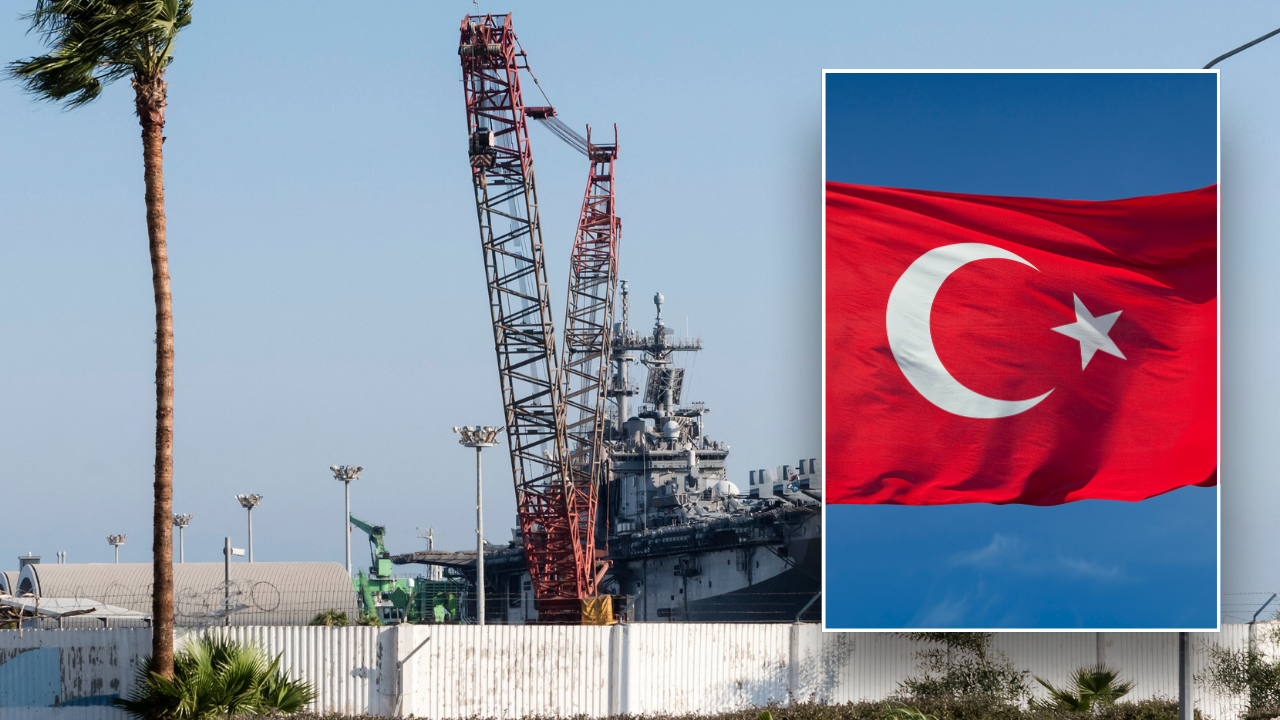
A mob of Turkish nationalists attacked U.S. soldiers in western Turkey on Monday, resulting in the arrests of 15 people.
The incident took place in Izmir, which is located on Turkey’s Aegean coast. In a statement, the Izmir governor’s office said the assailants belonged to the Youth Union of Turkey, which is connected to the nationalist Vatan Party.
The governor said that the victims, who were assigned to the USS Wasp, were “physically attacked.” Video posted to social media showed soldiers in civilian clothing yelling for help as they were restrained by a group of anti-American men.
The footage also shows an attacker throwing a plastic bag onto the soldier’s head as the crowd chanted, “Yankee Go Home!”
ISRAEL SHARES DOSSIER SPELLING OUT ALLEGATIONS AGAINST 12 UN EMPLOYEES ALLEGEDLY INVOLVED IN HAMAS ATTACK
Soldiers assigned to the USS Wasp were attacked by Turkish nationalists, according to officials. (Getty Images/iStock)
Five U.S. soldiers intervened during the incident, and authorities eventually arrested all 15 of the men who attacked the soldiers.
The U.S. Embassy in Turkey confirmed the incident in a statement published to social media on Monday, and said that the soldiers are safe.
“We can confirm reports that U.S. service members embarked aboard the USS Wasp were the victims of an assault in İzmir today, and are now safe,” the embassy said.
UN, HUMAN RIGHTS, MEDIA GROUPS RELY ON HAMAS DEATH TOLL IN ‘SYSTEMATIC DECEPTION’: EXPERT
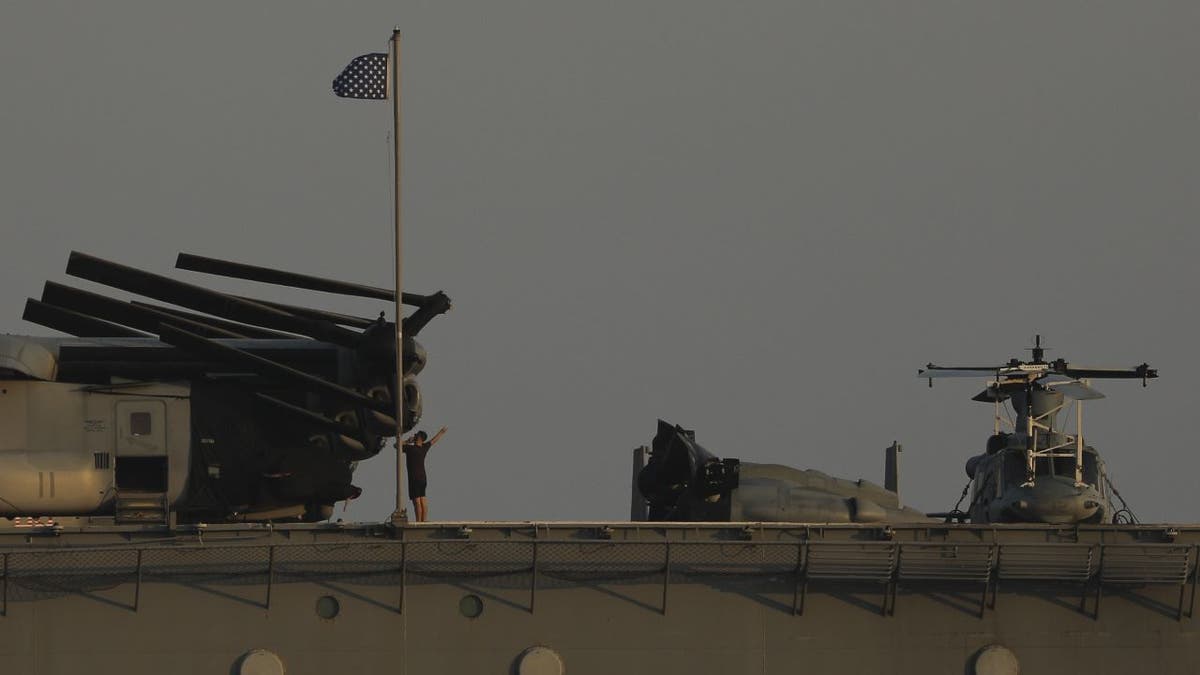
Crew members stand aboard the amphibious assault ship USS Wasp (LHD-1) docked at Limassol Port, amid rising tensions in the Middle East, in Limassol, Cyprus, Sunday, August 11, 2024. (Danil Shamkin/NurPhoto via Getty Images)
“We thank Turkish authorities for their rapid response and ongoing investigation.”
In a statement obtained by Reuters, the Youth Union of Turkey said the attack was “deserved” and criticized U.S. support of Israel.
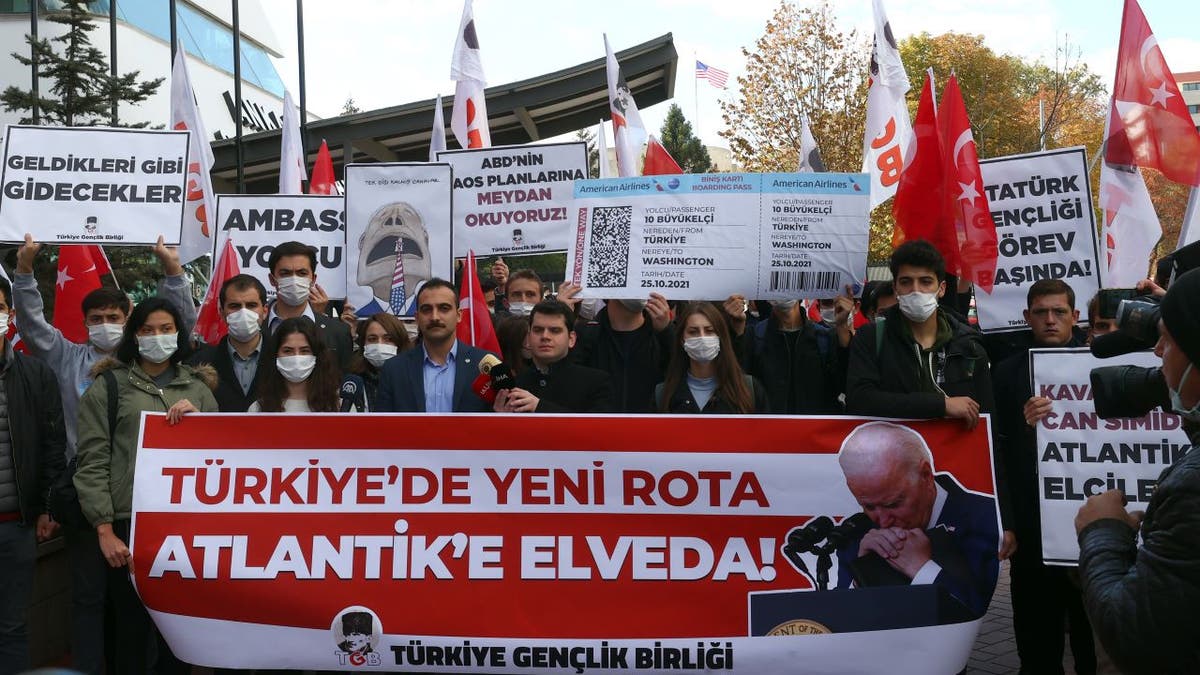
Members of the Youth Union of Turkey (TGB) gather outside the U.S. Embassy to protest envoys of 10 countries over remarks on the Osman Kavala case in Ankara, Turkey on October 25, 2021. (Evrim Aydin/Anadolu Agency via Getty Images)
“U.S. soldiers who carry the blood of our soldiers and thousands of Palestinians on their hands cannot dirty our country,” the nationalists said. “Every time you step foot in these lands, we will meet you the way you deserve.”
Reuters contributed to this report.
World
Hamas says Gaza captives will return ‘in coffins’ if Israel continues raids

Group’s armed wing Qassam Brigades issues statement, two days after bodies of six captives are recovered from a Gaza tunnel by Israeli forces.
The armed wing of the Palestinian group Hamas says captives held in Gaza would return to Israel “in coffins” if Israeli military pressure continues, warning that “new instructions” had been given to its fighters guarding the captives in case Israeli troops approach.
“[Israeli Prime Minister Benjamin] Netanyahu’s insistence on freeing the captives through military pressure instead of reaching a deal means they will go back to their families in coffins. Their families have to choose between receiving them dead or alive,” Abu Obeida, spokesman for the Qassam Brigades, said in a statement on Monday, two days after the bodies of six captives were recovered by Israel.
“Netanyahu and the army are fully responsible for the death of the captives after they intentionally hindered any prisoners’ exchange deal,” it said.
The statement from the Qassam Brigades came shortly after Netanyahu said the six captives whose bodies were recovered from a tunnel in southern Gaza’s Rafah area had been “executed” by Hamas.
“I ask for your forgiveness for not bringing them back alive,” Netanyahu said during a televised news conference earlier on Monday as protests over the deaths continued for a second day in Israel.
“We were close, but we didn’t succeed. Hamas will pay a very heavy price for this,” he added.
Senior Hamas official Izzat al-Risheq said the six captives were killed in Israeli air strikes.
Meanwhile, protests in Israel over the deaths of the captives continued with angry demonstrators saying they could have been returned alive if Netanyahu’s government had signed a ceasefire with Hamas.
However, political analyst Akiva Eldar told Al Jazeera that a nationwide strike in Israel on Monday and rising public anger will not make a real difference to end the war in Gaza and free the captives.
“It seems that for Netanyahu, the alternative – which is his personal, political and personal life – is more important than the lives of the Israeli captives,” Eldar said, adding that despite a large number of protesters, “the Israeli right and radical right” who support the government “have the upper hand”.
“The government and the prime minister are now on the defensive,” Ori Goldberg, an expert on Israeli politics, told Al Jazeera. “This is about momentum now.”
Meanwhile, US President Joe Biden also said Netanyahu was not doing enough to secure a deal for the release of the captives.
Speaking to reporters at the White House on Monday, Biden was asked whether he thought Netanyahu was doing enough to reach a deal. Biden said, “No.” He did not elaborate.
Months of stop-start negotiations mediated by the United States, Qatar and Egypt have so far failed to reach an accord on a Gaza ceasefire proposal laid out by Biden in May.
Hamas wants an agreement to end the war and get Israeli forces out of Gaza while Netanyahu says the war can only end once Hamas is defeated.
Alon Pinkas, a former Israeli ambassador and government adviser, told Al Jazeera that it is Netanyahu who “absolutely has no interest in a hostage deal or ceasefire”.
“Those who are shocked and devastated and angered about what happened should not be surprised because this is exactly what the [Israeli] defence minister [Yoav Gallant] and all of us were warning would happen,” Pinkas said.
“His [Netanyahu’s] and only his reluctance to engage in a deal is what made all this happen.”
-

 Connecticut1 week ago
Connecticut1 week agoOxford church provides sanctuary during Sunday's damaging storm
-

 Politics1 week ago
Politics1 week agoWhy won't Pennsylvania voters have results on Election Night?
-

 Politics1 week ago
Politics1 week agoWith 13 days until voting starts, 'election season' kicks off sooner than you think
-

 Politics1 week ago
Politics1 week ago2024 showdown: What happens next in the Kamala Harris-Donald Trump face-off
-

 World1 week ago
World1 week agoSolingen stabbing: Three killed in attack at Germany festival
-

 World1 week ago
World1 week agoFrench police officer injured in synagogue arson attack
-
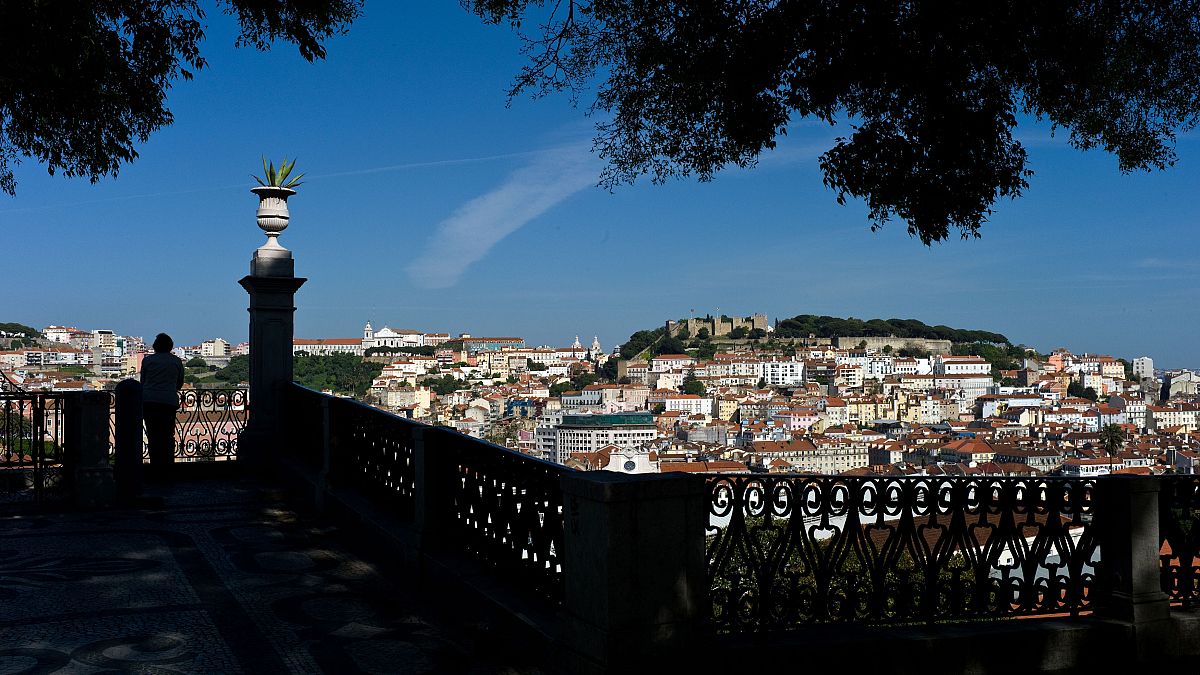
 World1 week ago
World1 week agoPortugal coast hit by 5.3 magnitude earthquake
-
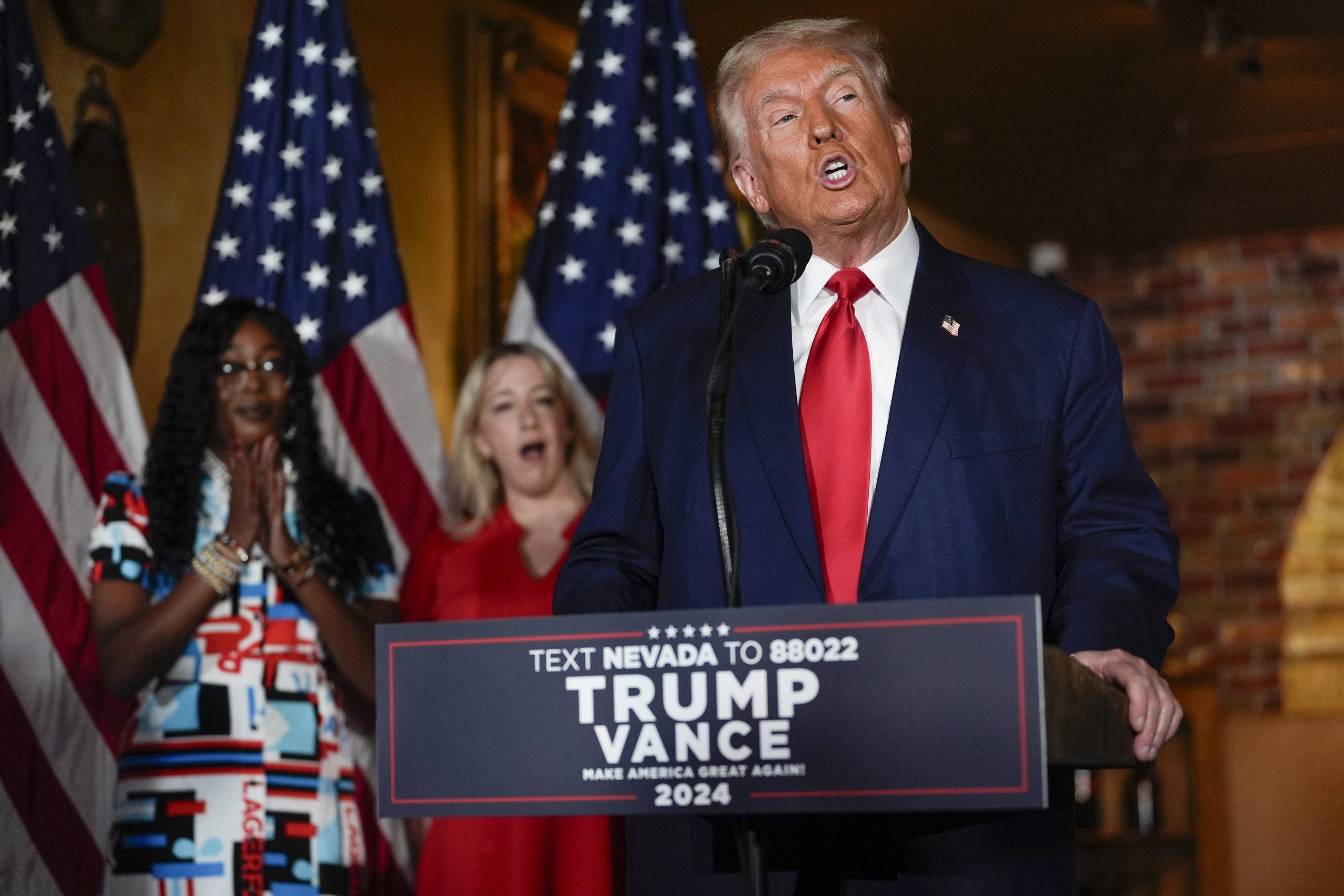
 Politics1 week ago
Politics1 week agoTrump sets intense pace with campaign events as questions swirl about Harris' policy positions
















